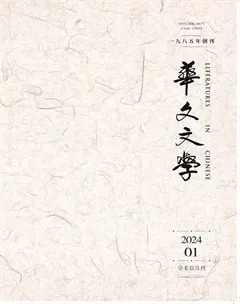“纵今侠骨埋荒土,留给人间是姓名”:1950-1980年代台湾地区的“秋瑾文艺”研究
2024-04-18黄茜苗昱菲
黄茜 苗昱菲
摘 要:秋瑾是近代著名的革命先驅和妇女解放先锋。秋瑾就义后,百年来以秋瑾为主题的文艺作品不胜枚举。在中国台湾地区,“秋瑾文艺”集中出现于1950-1980年代,呈现出三条发展脉络。台湾主流报刊的纪念活动以及罗家伦的宣传实践,均为秋瑾事迹在台传播奠定了基础,成为考察当代台湾文化场域中,辛亥革命历史记忆与晚清“崇侠尚武”思潮存续问题的重要视角。以秋灿芝、孟瑶、李元贞为代表的女性作家,借由秋瑾传记写作,对革命女性、妇女解放等问题进行了深入探索。大众传媒的不断发展带动了秋瑾影视题材的兴盛,在“武侠热潮”与通俗文学的助推下,港台地区秋瑾题材的影视剧把武侠作为娱乐大众的手段,映射出“武侠”在当代社会的价值流变问题。1950-1980年代台湾地区“秋瑾文艺”不同路向的发展演变,既显现了辛亥革命记忆在台传播的兴盛图景,也印证两岸作为命运共同体和历史记忆共同体的特质。
关键词:秋瑾文艺;台湾地区;辛亥革命记忆;女性议题;武侠
中图分类号:I206 文献标识码:A 文章编号:1006-0677(2024)1-0024-10
'Buried as It is in a Desert, It Remains the
Name of a Heroine': Research into the Qiu Jin Arts
and Literature in the Taiwan Region in the 1950s to 1980s
Huang Qian and Miao Yufei
Abstract: Qiu Jin is a famous revolutionary pioneer in womens liberation in modern China. There have been countless works of art and literature with her as the theme in the century since she died a martyr. In the Taiwan region of China, Qiu Jin Arts and Literature appeared concentratedly in the period from the 1950s to the 1980s, revealing three veins of development. Celebratory activities held by mainstream newspapers and magazines in Taiwan and the propaganda practice of Luo Jialun laid the foundation for the transmission of Qiu Jins deeds in Taiwan, becoming an important angle of view in the examination of historical memory of the 1911 Revolution and the continuance of the advocated late-Qing chivalry and martial arts in the cultural site of Taiwan. Women writers, with Chiu Tsan-Chi, Meng Yao and Lee Yuan-Chen as their representatives, have delved in-depth into issues of revolutionary women and womens liberation by writing biographies of Qiu Jin. The continual development of mass media has also led to the rise of film or TV subject matter related to Qiu Jin, and, helped with hot waves of chivalry and pop lit, movies or TV dramas featuring Qiu Jin in the Hong Kong and Taiwan regions used martial arts and chivalry as a way of entertaining the masses, reflecting the issue of values change in contemporary society. The evolution in different ways of the Qiu Jin arts and literature in the Taiwan region between 1950 and 1980 shows the prosperous scene of transmission of the 1911 Revolutionary memory in Taiwan and also bears witness to the qualities of both sides of the Taiwan Strait as a community of shared fate and of historical memory.
Keywords: The Qiujin Arts and Literature, the Taiwan region, memory of the 1911 Revolution, womens issues, martial arts and chivalry
